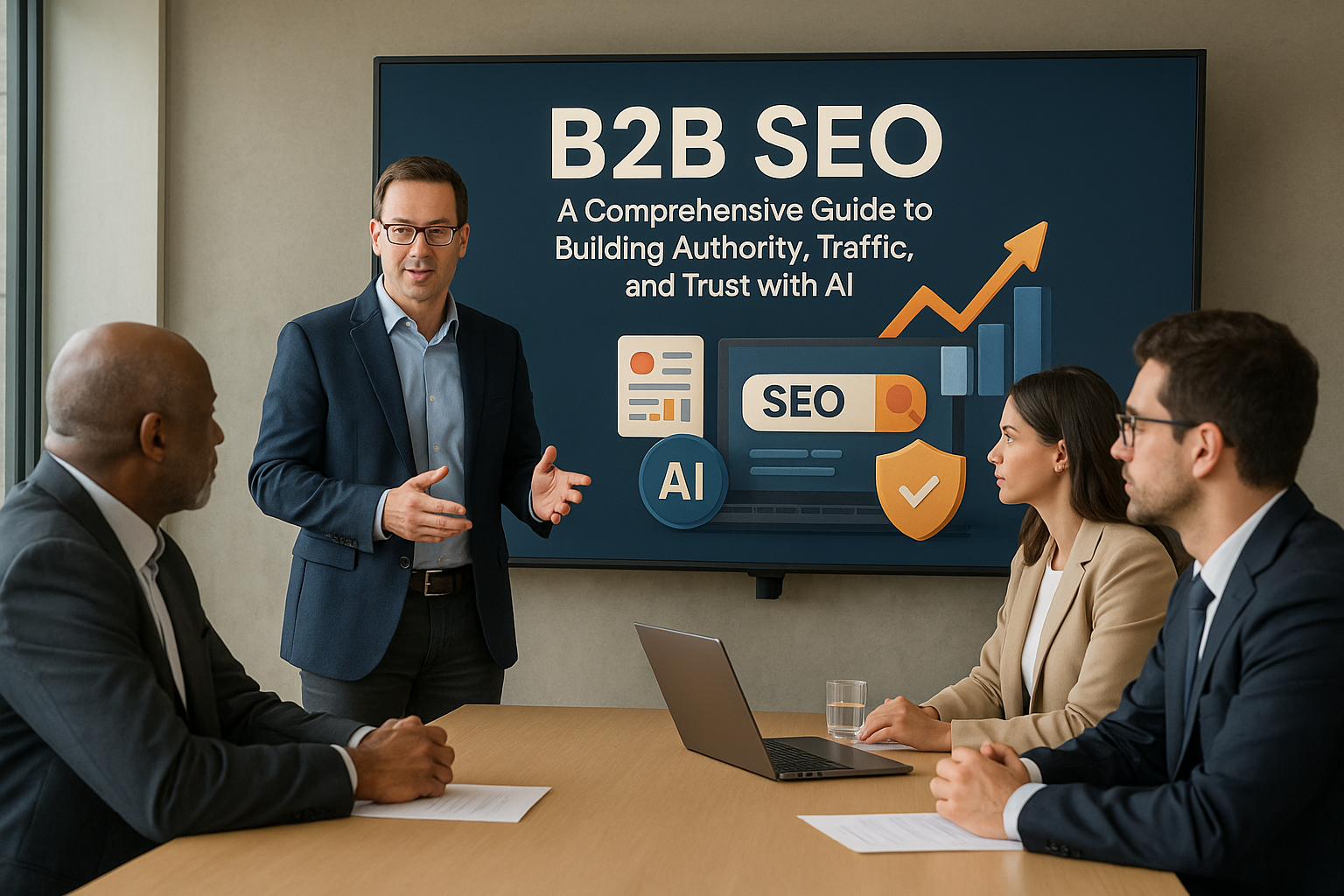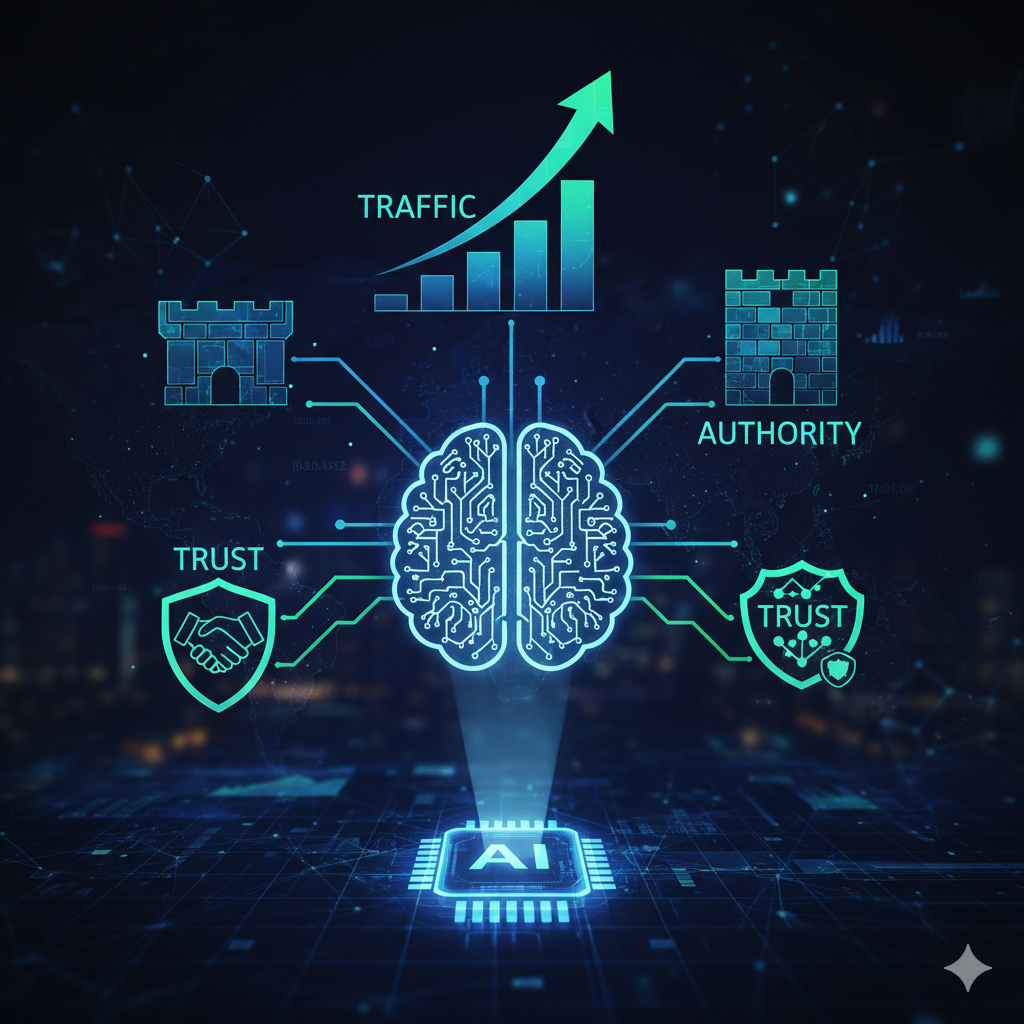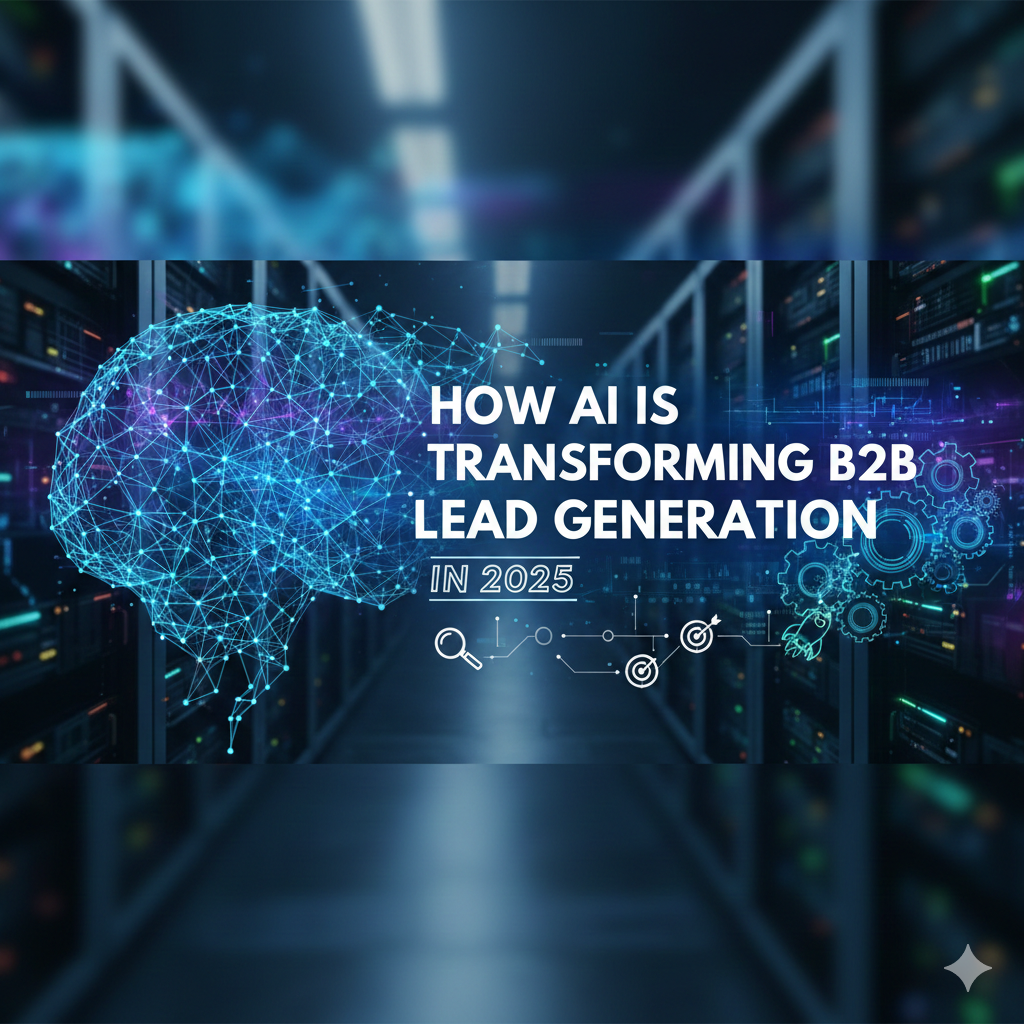The Ultimate B2B SEO Guide

Imagine this: it’s 2015, and most B2B companies still rely on trade shows, sales reps, and cold outreach to find clients. Fast forward to 2025, and the boardroom conversation sounds completely different. The question isn’t “Should we invest in digital?”; it’s “How can we dominate search?”
The change is profound. Today’s buyers no longer rely on salespeople; they search for vendors online and compare solutions on their own. According to Forbes (2025), AI and digital transformation are now embedded in every facet of B2B commerce, with nearly one-third of industrial firms optimizing their digital experiences for AI-driven procurement systems.

In this new landscape, SEO means being easy to find, trusted by buyers, and valuable at every stage of their journey. It’s how B2B brands attract high-value clients, build trust at scale, and sustain long-term growth.
The key challenge for most organizations is determining where to start.
A successful B2B SEO strategy aligns with long sales cycles, niche markets, and complex buying processes.
This comprehensive guide breaks it all down, from what B2B SEO really means to how AI is transforming the way we optimize, analyze, and grow.
What Is B2B SEO?
B2B SEO (Business-to-Business Search Engine Optimization) is the process of optimizing your digital presence to attract organizations, not individual consumers. It’s about ranking your business where decision-makers, procurement teams, and executives are actively searching for solutions like yours.
While B2C SEO focuses on emotional, impulse-driven buyers, B2B SEO is characterized by rational, research-based, and intent-driven approaches.
Why B2B SEO Matters
A strong B2B SEO strategy ensures that your company:
- Appears in front of high-intent buyers searching for solutions.
- Builds trust and authority through thought leadership content.
- Generates consistent inbound leads without heavy ad spending.
- Supports your entire sales funnel from awareness to decision.
Unlike paid campaigns, SEO compounds over time. The content you create today becomes your lead magnet tomorrow.
The Difference Between B2B SEO and B2C SEO
At first glance, SEO is SEO keywords, backlinks, and optimization. But when you zoom in, B2B SEO plays by different rules.
Key Differences at a Glance
Search Volume vs. Intent: What Matters
Here’s the key insight: B2B SEO isn’t about chasing high-volume keywords.
According to SEMrush, B2B queries often have lower search volumes but far higher conversion intent.
For instance:
“Best CRM tools” (low search volume, high intent)
“What is CRM?” (high search volume, low intent)
A B2C brand might chase the second one for visibility, but a B2B company thrives on quality over quantity. The win lies in ranking for decision-stage keywords that connect with purchase-ready users.
Core Pillars of a Successful B2B SEO Strategy
1. Keyword Research and Intent Mapping
B2B SEO starts with understanding intent.
Instead of generic keywords, focus on bottom-funnel terms that signal active interest, like “AI-driven procurement platform” or “best SaaS CRM for logistics.”
Pro Tip: Utilize tools like SEMrush or Ahrefs to categorize keywords by intent, including awareness, consideration, and decision.
2. On-Page SEO: Optimize Every Touchpoint
Ensure your website communicates trust and relevance:
- Optimize title tags and meta descriptions for clarity and increased click-through rates.
- Add structured data for rich snippets and better visibility.
- Include clear CTAs that guide users to take the next step (e.g., “Book a Demo”).
3. Content Marketing for Authority
B2B buyers value expertise. Build it through:
- Thought leadership blogs (like this one).
- Case studies demonstrating results.
- Data-backed white papers and industry reports.
Content should educate, not just promote. The goal is to build credibility and keep your brand top-of-mind during long buying cycles.
4. Technical SEO: The Foundation of Trust
Technical SEO ensures search engines can crawl, index, and trust your site:
- Mobile-first design & fast load speed.
- HTTPS security.
- Clear internal linking and XML sitemaps.
Pro Tip: Regular technical audits prevent crawl errors that silently hurt your visibility.
5. Backlink Strategy: Build Reputation, Not Just Links
For B2B, backlinks should come from relevant industry sources, such as publications, trade organizations, and SaaS review sites.
Avoid volume-based link building; focus on contextual authority that strengthens your brand reputation.
6. Analytics and Performance Tracking
Track metrics that actually matter in B2B:
- MQL-to-SQL conversion rates
- Organic pipeline contribution
- Page dwell time & scroll depth
- Lead quality over quantity
The Role of AI in B2B SEO

AI has redefined how B2B companies approach SEO, turning guesswork into precision.
1. Smarter Keyword Research
AI-powered tools analyze vast data to uncover long-tail, high-intent keywords hidden beneath traditional search patterns.
Example: Instead of manually filtering, AI can identify patterns like “AI procurement solutions for oil & gas companies.”
2. AI-Powered Content Optimization
AI helps optimize existing content for semantic relevance, readability, and search intent alignment using NLP models.
Tools like MarketMuse, Clearscope, and SurferSEO use machine learning to predict what content performs best for your niche.
3. Predictive Analytics for Search Trends
AI forecasts what your audience will search next, allowing you to create content proactively rather than reactively.
4. Voice and Natural Language Search Optimization
With more B2B decision-makers using voice assistants, AI helps tailor your content for natural language queries and zero-click results.
Pro Tip: Combine human expertise with AI insights. Your team provides context; AI provides precision.
The Future of B2B SEO
1. From Keywords to Context
Search engines are evolving. Google’s SGE (Search Generative Experience) focuses on intent and authority, not keyword stuffing.
Future-proof your B2B SEO strategy by emphasizing topical authority, owning an entire subject area through consistent, interconnected content.
2. AI-Personalized Search Experiences
AI will continue to personalize search results based on industry, role, and behavior, meaning contextual targeting will be the new SEO goldmine.
3. Zero-Click and No-Search SEO
More searches are being answered directly in SERPs through featured snippets, panels, and AI overviews.
Winning these spots requires structured, data-rich content that directly answers questions.
4. Integration with Account-Based Marketing (ABM)
Expect tighter integration between SEO, ABM, and data analytics. The goal? To target fewer, higher-value accounts with personalized, search-informed strategies.
Partnering for Smarter B2B SEO Growth
B2B SEO isn’t about playing the algorithm game; it’s about building credibility, discoverability, and trust in a digital-first world.
As search evolves, AI will be the central growth driver, helping B2B brands scale visibility and personalize engagement like never before.
At GrowthMak, we blend AI-powered SEO strategies with deep B2B expertise to help you:
- Rank for intent-driven keywords.
- Build authoritative content ecosystems.
- Drive qualified leads that convert into long-term clients.
Strengthen your B2B search strategy with an AI-driven approach to authority and growth. Let’s make your business the next industry authority.
Get Started with Growthmak Today!
Unlock your marketing potential with our expert team.





.svg)

